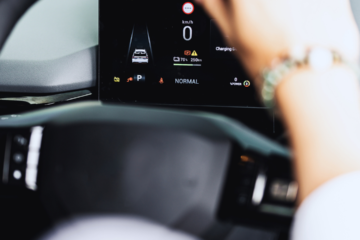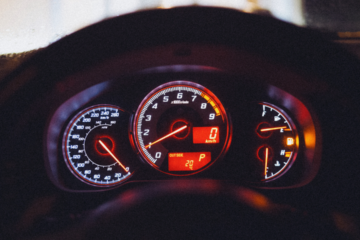Choosing the Best Electric Brake Trailer Kit for Your Needs

If you’re towing heavy loads, you’ve probably thought about braking power. When the weight behind you increases, so does the demand on your braking system. Enter electric brake trailer kits—a reliable, efficient solution designed to give you extra braking control and security on the road. But with so many options out there, choosing the right one can be challenging. Let’s look at the key factors that can help you select the best electric brake trailer kit for your needs, without all the guesswork.
What Exactly Is an Electric Brake Trailer Kit?
An electric brake trailer kit provides a braking system controlled by electricity rather than traditional hydraulic pressure. In simple terms, it uses an electrical signal to activate brakes on your trailer. The system connects to the vehicle’s brake pedal, allowing you to brake simultaneously with the towing vehicle. This extra control can make all the difference in handling your trailer safely, especially on slopes, winding roads, or in sudden stop situations.
But what’s in the box? Typically, an electric brake trailer kit includes brake drums, magnets, backing plates, brake shoes, and all the essential mounting hardware. While kits vary, this is the standard collection of parts. Some may come with a wiring harness or even a brake controller, depending on the brand and model.
Why Use an Electric Brake Trailer Kit?
If you’re wondering why you should even consider electric brakes, here are a few compelling reasons. For one, they’re highly responsive—electric brakes engage almost instantly as soon as you apply pressure on your vehicle’s brake pedal. This quick response can prevent trailer sway and reduce stopping distance. Plus, they allow you to set brake intensity, giving you a more customised braking experience, which can be essential for different loads or road conditions.
How to Pick the Right Kit? Key Factors to Consider
Choosing an electric brake trailer kit boils down to several crucial factors. While it may seem technical, focusing on a few key points can make the selection process much easier.
1. Load Capacity – Match Your Weight Requirements
This is often the first factor to check. Each electric brake trailer kit is rated for a specific weight range, so start by assessing your trailer’s maximum weight, including the load it will carry. If you’re pulling a lighter load, a smaller, 2,000 lb to 3,500 lb capacity kit might be sufficient. But for heavier trailers, consider something rated for 5,000 lb or more. Picking a kit with a higher rating than you need may seem like extra protection, but it can actually lead to overly aggressive braking, which can be difficult to control.
2. Compatibility – Does It Fit Your Trailer?
Not all kits are universal. Check that the kit you’re considering is compatible with your specific trailer axle size and type. Most axles are standard, but it’s worth verifying that the brake size, hub diameter, and bolt pattern align with your trailer’s current setup. Measure your axle or refer to your trailer’s manual for these specifications. If your trailer’s setup isn’t straightforward, or you’re dealing with an older model, double-checking compatibility is essential to avoid any fitment issues.
3. Brake Controllers – Wired or Wireless?
Electric brake systems don’t work without a brake controller, which sends signals from your vehicle to your trailer. You’ll generally have two choices here: wired or wireless. Wired controllers connect directly to your vehicle’s braking system, providing a consistent signal and often greater reliability. Wireless models are increasingly popular for their flexibility and ease of installation since they don’t require splicing into your vehicle’s wiring. However, wireless controllers may face occasional connectivity issues, so weigh the pros and cons based on your preference.
4. Ease of Installation – DIY or Professional Help?
Some electric brake trailer kits are easier to install than others. If you’re comfortable with mechanical work, a DIY installation might save you time and money. Kits with clear, step-by-step instructions and labelled parts are generally easier to handle on your own. However, if the kit requires significant wiring adjustments or axle modifications, you may prefer professional installation. Make sure to factor in this cost if you’re unsure of tackling it yourself.
5. Maintenance – Long-Term Care and Upkeep
Electric brake systems generally require less maintenance than hydraulic ones, but they’re not entirely set-and-forget. Magnets and brake shoes may wear over time and need occasional inspection. Some kits are designed with easy access to key parts, making maintenance a straightforward process. Kits that require minimal upkeep can save you both time and cost over the long term, so it’s worth checking reviews or product descriptions for this information.
Key Benefits of Electric Brake Trailer Kits
Electric brake trailer kits are popular for good reasons. Here are some of their main advantages:
- Increased Control – With braking tied to the vehicle, you gain control that allows for smoother, more reliable stops.
- Adjustable Braking Force – Brake controllers let you fine-tune the braking force, essential for various road conditions.
- Reduced Stopping Distance – Electric brakes engage quicker than many hydraulic systems, reducing the stopping distance.
- Simpler Maintenance – With fewer hydraulic components, these systems often require less regular maintenance.
- Enhanced Safety – Especially useful in difficult driving conditions, electric brakes can prevent sway and improve stability.
Installation Tips: Setting Up Your Electric Brake Trailer Kit
Planning to install the kit yourself? Here are some practical tips to help you through the process:
- Read the Manual – Manufacturers often provide specific instructions, so reading through these first can save time and hassle.
- Gather Tools – Common tools needed include a jack, socket wrench set, wire crimpers, and a torque wrench for accuracy.
- Check Wiring Thoroughly – Electrical connections should be tight and insulated to avoid short circuits or interruptions.
- Test the System – Before hitting the road, test the brakes in a safe area. Adjust your controller settings to get the right braking strength.
- Regular Inspection – Even after installation, inspect your brakes periodically to ensure optimal performance.
Making Your Choice: The Path to a Safer, Smoother Tow
Finding the best electric brake trailer kit isn’t just about getting the right parts; it’s about enhancing safety and control on every trip. With the right kit installed, you’ll enjoy smoother braking, reduced wear on your towing vehicle’s brakes, and a far safer towing experience. Remember to consider your trailer’s specific needs, from load capacity to axle type, to ensure you’re getting a kit that will work reliably. Whether you’re towing for work, leisure, or something in between, the right braking setup makes a world of difference.



0 Comments